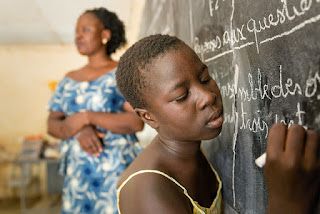Women and the environment
Since women are frequently disproportionately impacted by environmental degradation and climate change, there is a direct connection between women and the environment. But women also play a significant role in supporting environmental protection and sustainable development.
Being responsible for taking care of families and communities is one of the biggest ways that women are affected by environmental deterioration. Food, water, and firewood gathering are frequently done by women, but as the environment deteriorates, it becomes more challenging and hazardous. Moreover, pollution's negative health effects and a lack of access to sanitary facilities and clean water are more likely to affect women.
Notwithstanding these obstacles, women are actively supporting environmental conservation and sustainable development. Women frequently lead grassroots environmental protection initiatives and work to advance sustainable agriculture, renewable energy, and conservation.
Wangari Maathai, a Kenyan environmentalist and activist who started the Green Belt Movement, an organization that has planted over 50 million trees in Kenya and given women access to the economy, is one example of a woman's leadership in environmental conservation. For her efforts in democratic reform, sustainable development, and world peace, Maathai became the first African woman to be awarded the Nobel Peace Prize in 2004.
Vandana Shiva, an Indian environmental activist and philosopher who has pushed for sustainable agriculture and biodiversity preservation, is another illustration of a woman's leadership in environmental protection. Shiva has also campaigned to advance social justice and women's rights in India.
The advancement of gender equality and the empowerment of women are also essential for the advancement of environmental preservation and sustainable development. Women are more capable of taking part in decision-making processes and acting as change agents in their communities when they have access to education, health care, and economic possibilities.
As a result of the fact that women are frequently disproportionately affected by environmental deterioration and climate change, women and the environment are inextricably linked. But women are equally essential in supporting environmental protection and sustainable development. In order to achieve environmental sustainability and advance social justice, it is imperative to advance gender equality and women's empowerment.




Comments
Post a Comment